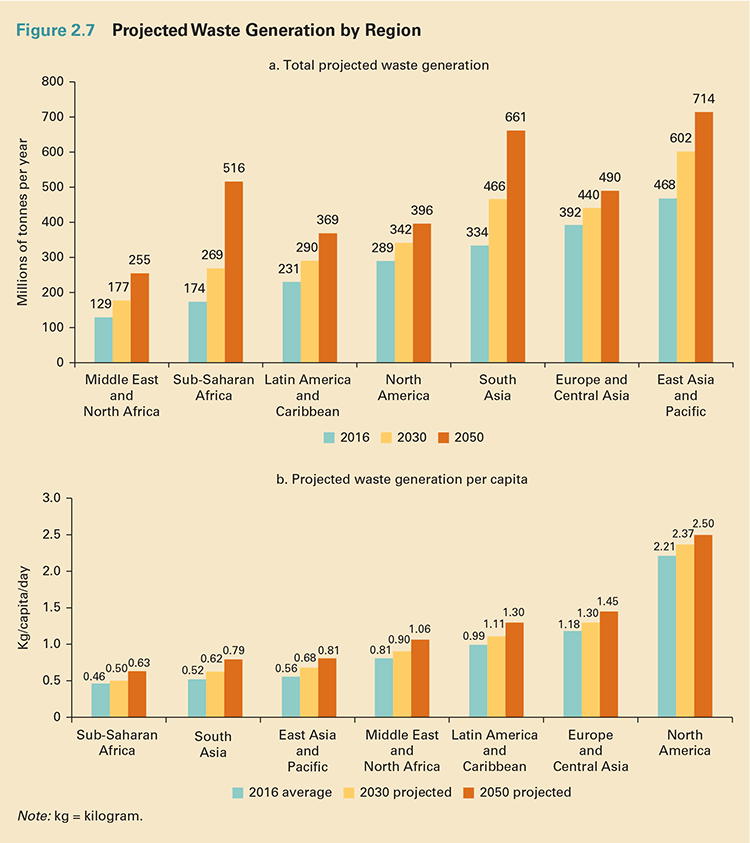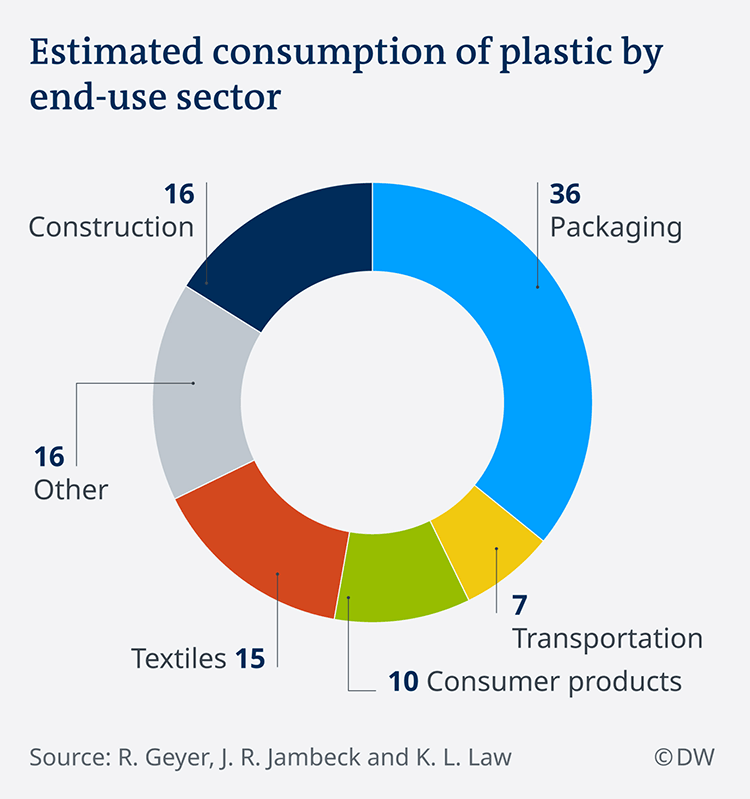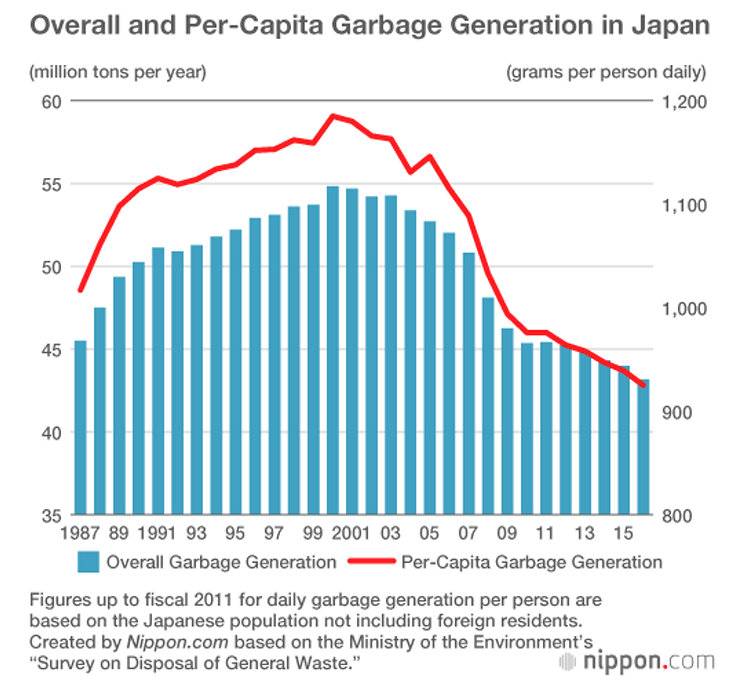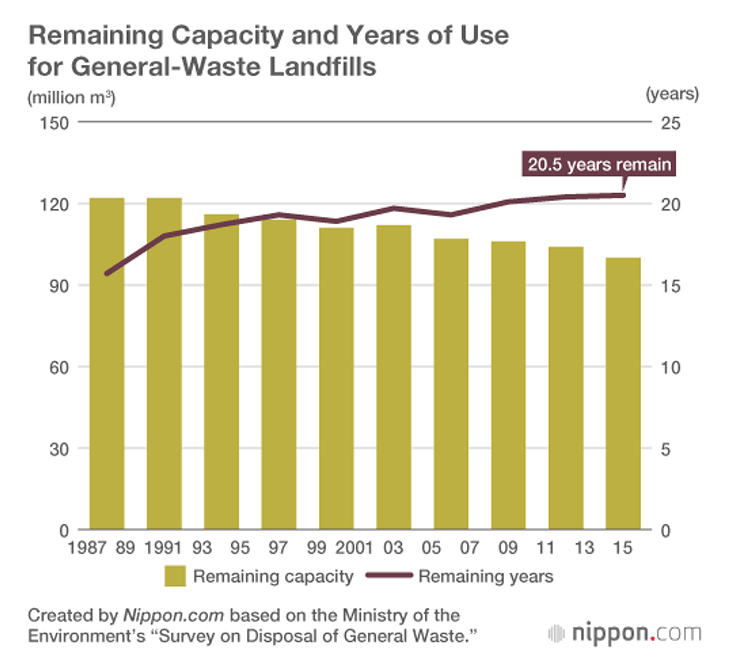MISSION 03
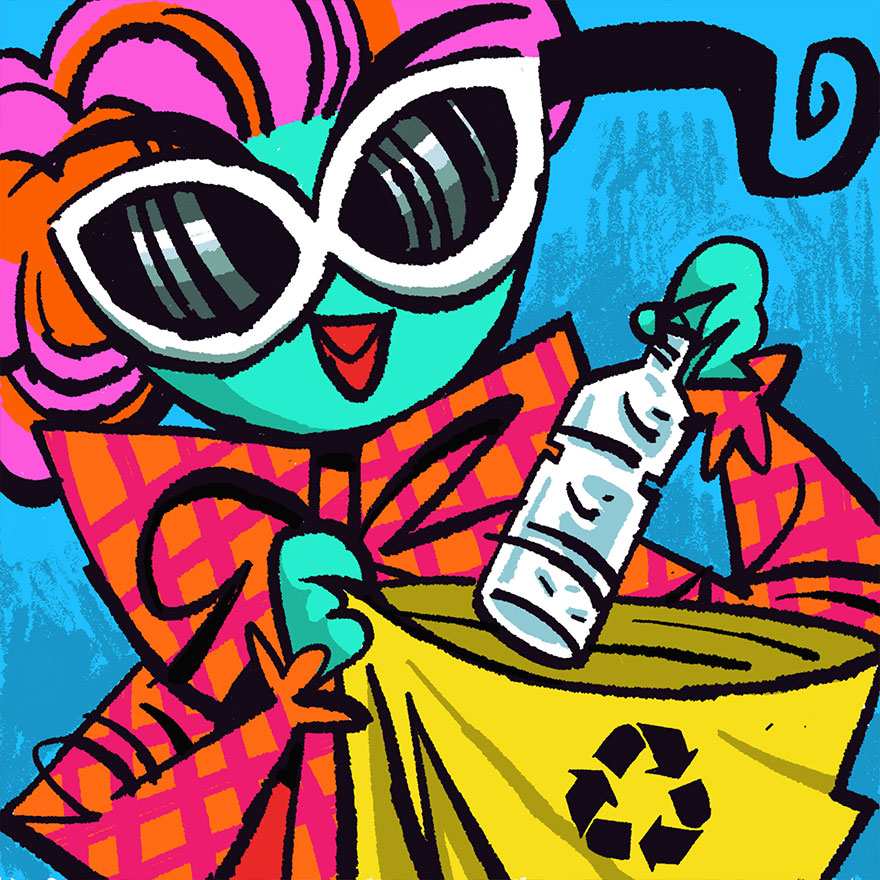
ABOUT
Out of all the creatures living on Earth,
only humans create waste.
Substances released by living creatures on the Earth do not usually become “waste” because they are broken down in nature’s cycles and completely absorbed into the environment.
Unfortunately, however, almost everything the Earthlings discharge in various ways is waste, and there is not enough capacity on Earth to decompose it. Today, the world is experiencing population growth and rapid urbanization. The annual waste total in the world was about 10.47 billion tons in 2010, and it is said it will be 22.31 billion tons around 2050. In Japan alone, it is predicted that landfill sites will be full within 20 years(as of 2016). “Plastic waste pollution” is especially serious. The plastic waste generated by developed countries is sent to developing countries and only clean and usable waste is used efficiently for energy, recycled plastics, and so on. Most of the rest of the waste ends up in the oceans and this “marine plastic” has become a pressing social issue.
PROBLEM
What happens when waste increases?
Did you know the waste volume in Japan is 42,894,000 tons, which is the fourth largest in the world?(*1)The daily waste volume per capita in Japan amounts to 918 grams(*2). All unrecycled waste ends up in landfill sites. The landfills in the 23 special wards of Tokyo are getting filled up one after another, and it is said the final remaining disposal sites in the 23 wards(Central Breakwater Landfill Sites and the New Sea Surface Disposal Site), where the landfill work is currently carried out, will be full in 20 years. Burning the waste with oil increases CO2 emissions and leads to global warming. Seacoasts and lands have been sacrificed to dispose the waste, and wildlife are losing their habitat. In recent years, marine plastic has become a major issue and there are concerns that there may be more waste than fish in the ocean around 2050. Reportedly, a large amount of “microplastics” that are broken into pieces of 5 millimeters have been found in the bodies of fish and seabirds, and many living creatures in the food chain including humans will be affected.
*1…OECD. Municipal waste (2017).
OECD (2020), Municipal waste (indicator). doi: 10.1787/89d5679a-en (Accessed on 11 November 2020)
*2…Reference: The Ministry of Environment’s website.
ACTION
The 3Rs is a general term which stands for “Reduce, Reuse, and Recycle”, and a keyword for not wasting limited resources. With “Refuse” and “Repair” added to the 3Rs, many local governments are trying to create a near zero-waste society.
Refuse *Refuse things you do not need(Say no!)
Bring your own water bottle, chopsticks, eco-bag and say no to disposable cutlery and bags
Do not receive unnecessary things such as free samples
Say no to excess packaging
Reduce *Reduce waste
Buy only what is necessary
No food leftovers
Buy refillable or simple packaging products
Use rental or sharing systems for items that are infrequently used(cars, bicycles, etc.)
Select durable or resource saving products
Reuse *Use things again
Select returnable packaging products and put them out for reuse
Host flea markets or garage sales etc. and try to reuse unwanted possessions
Get creative to take care of things and use them repeatedly
Repair *Repair and use
Buy clothes that last long(If possible, repair and wear them again)
Recycle *Use again as a resource
Compost kitchen waste with a home composter
Select products with well-established recycling systems
(e.g.)Use reusable food wraps(beeswax food wrap etc.)
Cooperate in separation and sorting of recyclable waste
Learn about identification marks that are useful for separating and sorting waste
Actively use products made with recycled materials
Popularise the efficient separation and sorting of recyclable waste
* Buy items with recycling labels
Citing: The Ministry of the Environment. Database of Ecolabel etc.
* Learn what you can recycle
Citing: The Ministry of the Environment. Environmental Restoration, Resource Circulation, Waste, recycle measures, Related to Various Recycling laws
©THE MISTRESS 5 all rights reserved. Unauthorized reproduction prohibited.





